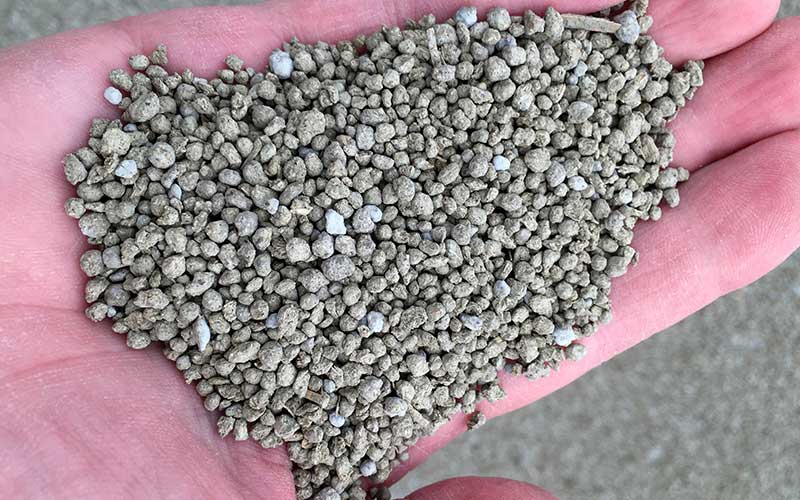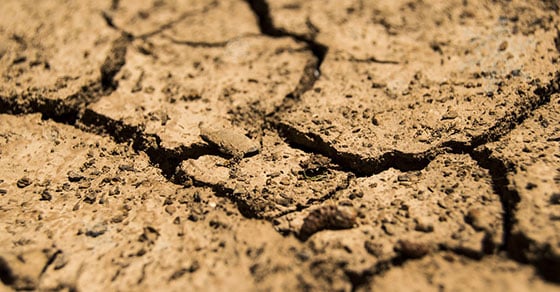A growing problem is being seen in soils across the globe: crop nutrient value is in severe decline, and soils are losing their ability to produce the nutrient-rich produce we need to stay healthy. In short, after generations of taking more from our soil than what we’ve been putting in, we’ve stripped it of the necessary components to foster a healthy, productive soil environment.
And while a blanket solution is not likely, many speculate that the beneficial reuse of organic matter from sources such as manure will be a key component in restoring soils around the globe.
Soil Degradation: Beyond Fertilizer Overuse
Nutrient deficiency, or poor soil fertility, is part of the larger problem of soil degradation. In addition to poor soil fertility, soil degradation encompasses a number of other issues, including a lack of organic matter, poor soil structure, erosion, and more. Perhaps the most severe threat to nutrient deficiency in particular has been the continued use of improper farming techniques.
Over time, the continued harvest and replanting of crops removes the nutrients required for healthy soil and plant growth. Nutrients would normally replenish themselves over time naturally, but are unable to because of the persistent planting of crops, a practice which breaks the natural nutrient cycle and ultimately strips the soil of the valuable nutrients it needs. And while traditional synthetic fertilizers are designed to put in the key macro nutrients needed for plant growth (Nitrogen, Phosphorus, and Potassium), they do not restore any other nutrients that were taken out, nor do they restore the organic matter necessary for a thriving soil environment.
In a comment regarding his paper on the topic, Ronald Amundson, professor of environmental science, policy and management at the University of California, Berkeley states, “Ever since humans developed agriculture, we’ve been transforming the planet and throwing the soil’s nutrient cycle out of balance. Because the changes happen slowly, often taking two to three generations to be noticed, people are not cognizant of the geological transformation taking place.”
Consequences of Poor Soil Health
Soil health is a key component in sustaining world food security and the overall health of the world’s population, both human and animal.
Nutrient-deficient soils produce food that is less nutritious than each generation of crops before, with multiple studies concluding that the crops we eat today offer fewer nutrients compared to crops from generations past.
Crops have been bred to grow bigger, stronger, and produce more, with nutrition all but going by the wayside. This is not only a concern for the health of the Earth’s inhabitants in terms of nutrition, but it also has a major effect on the world’s soils. Consider this alarming statement from the Nutrition Security Institute:
The depletion of soil nutrients and soil microorganisms contributes to soil erosion and the loss of arable topsoil. The Earth is losing arable topsoil at a rate of 75 to 100 GT. per year. If soil loss continues at present rates, it is estimated that there is only another 48 years of topsoil left.
Organic Matter: A Viable Solution
Organic matter is a critical component in maintaining and revitalizing soil health, and is the foundation of many biological processes that improve soil fertility and overall structure.
This valuable material fosters a thriving and productive soil environment through a number of benefits:
- Improved resistance to erosion
- Improved soil structure
- Improved ability to retain water
- Improved nutrient holding ability
- Improved nutrient uptake by plants
Organic matter restores natural nutrients and microorganisms to the soil, fostering a healthier, more productive soil that can produce the nutrient-rich food we need to maintain and improve food security around the world. The use of organic matter completes the once-disrupted natural nutrient cycle, creating a closed-loop system where nutrients used to grow our food are put back into the soil where they belong.
The Case for Manure
While many types of organic matter are available and would be beneficial to restoring our soils, one type in particular is garnering attention: manure.
Up until recently, and even still, the use of manure has seen mixed reviews. Farmers have known for generations that the application of manure on fields adds valuable nutrients and organic matter to soil – nutrients that they don’t have to purchase in the form of synthetic fertilizers. But with increasing herd sizes and less arable land, historically, manure piled up, resulting in nutrient run-off and leaving manure with a poor reputation.
The processing of manure into a granular fertilizer product would not only create a viable form of organic matter, but would also alleviate some of the challenges associated with raw manure and the pressure on farmers to find a solution.
The processing of manure into a dry, granular product offers innumerable benefits, both to the farmer, and to the soil:
- Custom blends can be created, allowing farmers to create exactly what works for their fields.
- Dry granules can be stored, allowing farmers to use nutrients only as needed.
- Dry granules are critical to the growing field of precision agriculture, where areas of computer-mapped fields are supplied with the exact amount of nutrients they need, courtesy of a mechanized feeding system.
- Farmers can use the product to subsidize their requirement for purchasing additional fertilizer, saving on costs. There is also potential to sell the granular product, creating a revenue stream where waste management costs were once incurred.
- The opportunity for runoff is decreased, because the manure is not in an easily flowable slurry. The potential for runoff is also reduced because a granular product makes following a nutrient management program much easier.
- Soil structure is improved through the addition of micro and macro nutrients.
- Dry granules are also significantly easier to transport and apply than raw manure.

Granular manure-based fertilizer
While the outlook on the world’s depleted soils may look grim, the granulation of manure into dry granules may offer, in part, a solution to replenish our nutrient deficient soils. The benefits of this model are two-fold, in that the granulation of manure not only offers the much-needed organic matter our soils crave, but that issues associated with nutrient run-off can be better managed, and many of the on-farm challenges associated with manure are mitigated.



